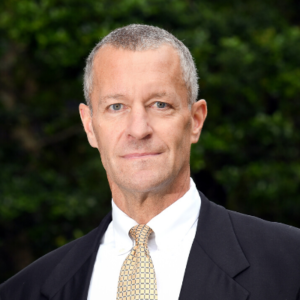Spotlight on Mediator Doug Wilde
Mon, Jun 29th, 2020 | by Miles Mediation and Arbitration | Get to Know our Neutrals, News | Social Share
 For Douglas Wilde, Miles Mediation & Arbitration Neutral, modern-day mediation has evolved into an exceptional practice of balancing the needs and goals of parties while focusing on the outcome of resolution. As a serious cyclist, Doug knows this balancing act with intimacy. As in the cycling strategy of leading out, an effective mediator will keep up a sustained effort to help drive the pace of the negotiations in a positive and collaborative direction. But there comes a time when they must weave out of the line and peel off to allow the parties to put in the effort to explore the options and drive the pace forward themselves.
For Douglas Wilde, Miles Mediation & Arbitration Neutral, modern-day mediation has evolved into an exceptional practice of balancing the needs and goals of parties while focusing on the outcome of resolution. As a serious cyclist, Doug knows this balancing act with intimacy. As in the cycling strategy of leading out, an effective mediator will keep up a sustained effort to help drive the pace of the negotiations in a positive and collaborative direction. But there comes a time when they must weave out of the line and peel off to allow the parties to put in the effort to explore the options and drive the pace forward themselves.
After spending the first eighteen years of his practice at an insurance defense firm, Doug opened his own practice in 2003 and was inspired by the efficacy of other mediators he saw in the field when working on personal injury cases. As a result, he became a certified mediator in 2012. It was a visionary moment because, as he was shifting his practice from defense to plaintiff’s work and mediation, the face of mediation, rather than the format, was changing.
Literally.
While litigating “premises” cases — fall-downs, muggings, shootings, and more at grocery stores, restaurants, and apartment complexes — in the ‘90s, Doug noted that the “Neutrals” or lead mediators were very often retired or judges or soon-to-be-retired attorneys. He remarks that mediation, as a practice for those in the legal profession, was seen as “something to do” once you decide not to “actively” pursue the law. “Rather than going fishing,” he says. “Mediators were a very homogeneous group.”
Fast forward two decades, and there’s a remarkable — and, in Doug’s view, an extremely positive — transformation in the ranks and backgrounds of mediators. Within the Miles panel, for example, Doug sees that there are now a wide variety of Mediators, across the board, differing in age, specialties, plaintiffs’ and defense lawyer backgrounds, gender, and more. With such a vast cross-section of Neutrals to choose from, parties — and attorneys — have a better chance of finding the right Neutral to suit their temperament, their case, and even their style of communication.
Doug points out that it’s not uncommon for attorneys on one side to allow the other side to suggest or choose a Neutral. The idea is that allowing choice means a better chance for the attorney who picks to trust the mediator’s guidance and suggestions, leading to a far more positive outcome. The wider the selection of Neutrals, then, the better the chance for interpersonal connections and relationships between attorneys in the legal community to be put to use in a mediation that benefits all.
While diversity brings in differentiating perspectives, it is not enough to tackle resistance. In cycling, as in mediation, the opposition can take many forms, such as prevailing wind speeds, poor weather conditions, and even the physical conditions of the riders in a peloton (cycle-speak for a riding group). In mediation, resistance comes in many forms, including resistance to virtual mediation.
Doug’s solution is to offer parties who display reluctance with participating in virtual mediations the chance to try out the technology in “practice” sessions. The whole point is to get them comfortable and then actually experience a virtual session. That’s the point of conversion. Once parties go through the process and see for themselves that being on-camera is not that different than being in-person, they transform into believers.
Doug believes the most significant benefit that mediation offers his parties mirrors the strategy of drafting when riding. Riders who stay just behind another rider cut down on wind resistance and experience a ride that is 40% more effective and smoother. Mediation, guided by choosing the right mediator-party fit, works much in the same way. Even if you rely on a judge or jury to hand down a decision, it’s still very often an “either-or” outcome. Mediation is a collaborative process and primarily about maintaining balance in the group. By positioning themselves behind the guidance of a Neutral, parties experience a balance and diffusion of power. That way, they are more likely to leave with outcomes they can live with while enjoying a smooth and efficient ride.
ABOUT DOUG WILDE
Doug Wilde is a mediator with Miles Mediation in Atlanta. He has over 30 years of experience as a defense attorney, personal injury attorney, and mediator.


